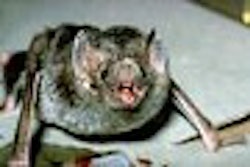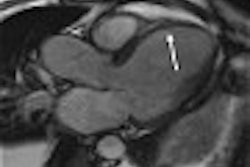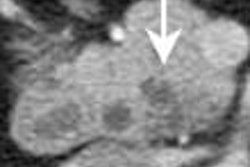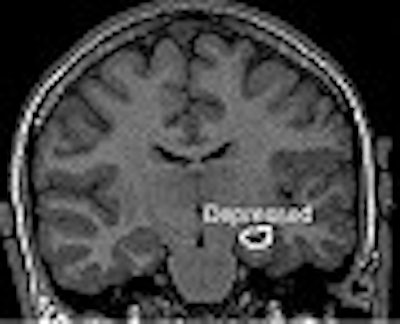
Teenagers who suffer from major depressive disorders also appear to have smaller hippocampi, implying that certain biological markers can be pinpointed in pediatric mood disorders with MRI, according to Canadian researchers. They published their results in the online journal BMC Medicine.
"The most basic implication of this finding is that pediatric depression is a bona fide medical illness with biological correlates. Biological markers are being found that implicate certain brain regions in the pathophysiology of pediatric mood disorders," said Frank MacMaster, one of the study’s authors, along with Dr. Vivek Kusumakar. The hippocampus is the region of the brain responsible for memory, emotion, and motivation.
"If sufficient biomarkers, like a smaller hippocampus in pediatric depression, are found, then MR scans can offer the clinician additional guidance in making a diagnosis," added MacMaster, who is a doctoral candidate at Dalhousie University as well as an MR applications specialist and research council officer with the National Research Council of Canada. Both are located in Halifax, Nova Scotia.
For this investigation, 34 teenagers, ages 13-18, were enrolled, half of whom were diagnosed with major depressive disorder (MDD). The teens with MDD were age-sex matched with a control group.
Researchers launched this study of younger subjects in hope of being able to observe the differences in brain structure that may cause depressive disorder, rather than differences that are a result of long-term illness or treatment.
The subjects underwent MR scans on a 1.5-tesla Magnetom Vision unit (Siemens Medical Solutions, Malvern, PA). A sagittal scout series was used to test image quality, and MR measurements were taken of left and right hippocampal volumes.
The investigators found that the hippocampi of patients with major depressive disorder were 17% smaller, on average, than those of the controls. In particular, the size differences were most noteworthy in the left hippocampus, with an average volume of 2.53 cm3 in patients with depression and 3.05 cm3 in the other adolescents.
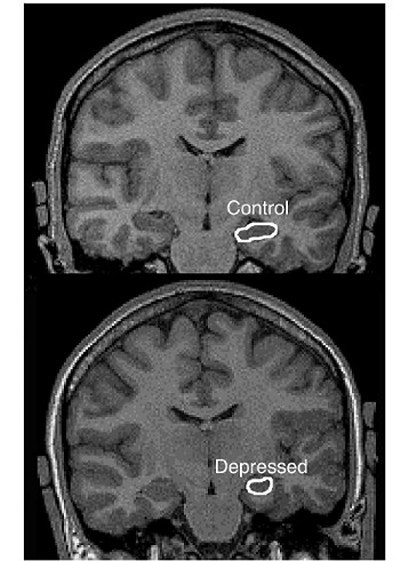 |
| MR image showing the demarcation of the hippocampus (in white) in healthy control (top) and adolescent with major depression (bottom). The hippocampus was found to be 17% smaller in adolescents with major depression as compared to age- and sex-matched controls. Image courtesy of Frank MacMaster. |
The difference in the size of the brain structure does not appear to be a side effect of treatment, as patients who were not yet being treated for depression (MDD) also had smaller hippocampi than other study participants, the researchers stated.
However, they cautioned that the results are only preliminary, and that more research is needed. Although one of the emerging uses for brain imaging is in assisting the diagnosis and treatment of psychiatric illness, "findings would have to be replicated by other groups and in large samples prior to them becoming of diagnostic quality. Secondary to that, a more robust understanding of the neurobiology will allow for the development of more targeted treatments," MacMaster said.
The study’s co-author suggested that future research should examine children who are at risk for developing depression, following them longitudinally. The offspring of parents who have mood disorders themselves may provide a starting point from which to assess whether or not a smaller hippocampus is predictive of, or a result of, the illness.
By Jerry IngramAuntMinnie.com contributing writer
February 12, 2004
Related Reading
MRI links brain trauma to long-term depression, February 12, 2004
Echo-planar MR spectroscopy improves mood in depressed patients, January 15, 2004
Prolonged depression reduces global cerebral gray matter volume, November 20, 2003
MR study shows antidepressants shield hippocampus from deterioration, August 5, 2003
Copyright © 2004 AuntMinnie.com






